Book Launch: “Abortion Under Apartheid: Nationalism, Sexuality, and Women’s Reproductive Rights in South Africa”
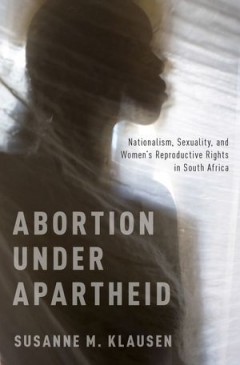 Department of History and The Institute of African Studies presents a Book Launch of “Abortion Under Apartheid: Nationalism, Sexuality, and Women’s Reproductive Rights in South Africa” by Susanne M. Klausen. Department of History and The Institute of African Studies presents a Book Launch of “Abortion Under Apartheid: Nationalism, Sexuality, and Women’s Reproductive Rights in South Africa” by Susanne M. Klausen.
View event poster
|
Partnership Africa Canada Job Opportunities
|
How The Anglin Scholarship Changes Lives
Brenda Chisanga Salasini says her life changed when she was awarded the Anglin Scholarship to pursue graduate studies at Carleton University.
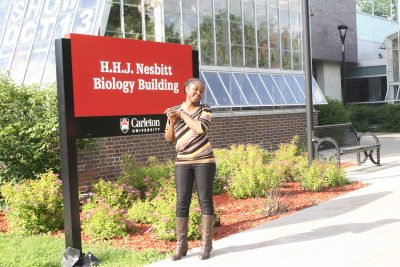
Says Salasini: “It’s so amazing how one man can make a difference in the lives of many. I am grateful to Dr. Anglin and his family for affording me a life time experience and demonstrating what it means to sacrifice for a better world.”
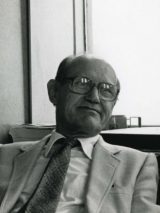
After spending years working at the University of Zambia, Doug Anglin, a professor emeritus at Carleton, and his wife Mary decided to fund a scholarship that would bring a student from the University of Zambia to study at Carleton.
So far, there have been three recipients. Salasini is the most recent.
She was born in Zambia, the second child in a family of seven. She says her family “didn’t have much” but, because of her parents, “I felt like a rich kid and went to school believing that not even the sky was my limit.”
In 2010, after completing a degree at the University of Zambia in Biological Sciences, Salasini was hoping to attend medical school when an horrific traffic accident resulted in severe spine injuries.
While healing, she was offered and accepted a job as a lecturer at the University of Zambia. “To my surprise, I began to enjoy teaching. Every time I managed to improve a student’s performance, it was a wonderful moment for me. I was fulfilled!”
Her med dream died a natural death.
Salasini was awarded the Anglin Scholarship in 2013 to come to Carleton to pursue a degree in plant science and then return to the University of Zambia to teach.
She ended up working in Dr. Shelley Hepworth’s lab.
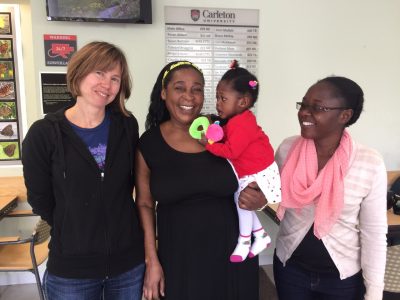
Shelley Hepworth, Brenda Chisanga Salasini, her daughter and mother
Says Hepworth: “In Zambia, students learn from a textbook with little or no access to working equipment. What equipment they do have is often broken, so they show it to the students and explain how it would work if it were functional. I remember during her first week, Brenda’s eyes lit up when she saw the PCR machine in my biology lab, and the microscope that she would use for her research.”
Salasini says that Hepworth was a great role model. “What I appreciate the most and will carry with me is her commitment to make me a better student and person in general.”
While researching in the Hepworth lab, Salasini investigated a group of genes that regulate flowering time. “For plant breeders, shifting the seasonal timing of reproduction (flowering time) is a major goal in order to produce novel varieties that are better adapted to local environments.”
This leads to more efficient crop breeding in response to unfavourable climate change which is impacting growing seasons in many parts of the world including Canada and Zambia.
Salasini also enjoyed attending classes. “The lessons were very practical and mind-capturing. I learnt that, as a teacher, we should allow students to explore their potential by stimulating interesting ideas. In short what we teach should not be carved in stone.”
But perhaps the biggest influence was Anglin himself. “When we first met over lunch, I was amazed by his friendliness and felt as if we had met before. By the end of lunch, I concluded that this man had a big picture for Zambia as a whole and was passionate about making a positive impact on our educational system.”
“I look at myself today and I am not the same. I want to give and make a positive change in someone’s life. In that way, I can inspire and continue being inspired. Someone made a sacrifice for me to make this world a better place. That is “greatness”.
Salasini completed her Biology degree at Carleton in June and is now a staff member at the University of Zambia in the Biological Sciences department, school of Natural Sciences. Classes began last October and Salasini says she will draw on her Carleton experience while teaching.
In addition to his generous scholarship, Doug Anglin also donated his rich collection of records, articles and other documents to the Institute of African Studies at Carleton. He taught comparative and African politics at Carleton from 1958 until his retirement in 1989. He was also the first Vice-Chancellor of the University of Zambia from 1965 to 1969. His last trip to Zambia was in 2011 when he was awarded an honorary doctorate by the University of Zambia.”
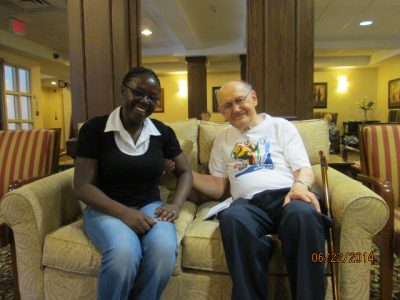
Brenda Chisanga Salasini with Dr. Anglin
More details about the Anglin scholarship can be found here.
|
Call for Papers-Researching East Africa
This research day seeks to bring together postgraduate researchers working on East Africa, to share work in progress in a relaxed and interdisciplinary environment. We invite proposals for research papers loosely related to issues of politics and the political in East Africa. The region is left here broadly defined, to include not just Kenya, Tanzania, and Uganda, but the Horn of Africa, the Sudans, the Great Lakes, and Mozambique. It is anticipated that most participants will be working in the fields of History or Politics, but we encourage submissions from other disciplines which have significant overlap with the subject matter. Participating researchers may be at any stage of the PhD process: we especially encourage first-year PhD students to take the opportunity to share research proposals. Early career researchers are also very welcome. We hope that faculty working on the region will be in attendance and will actively participate in discussion in each of the panels.
We ask for abstracts of no more than 200 words, to be sent to george.roberts@warwick.ac.uk by Friday 5 February 2016. Papers should last no longer than 20 minutes and be accessible for a multidisciplinary audience. Each paper will be part of an interdisciplinary panel comprising three speakers, with 30 minutes set aside for discussion.
Lunch will be provided and speakers will be able to reclaim reasonable travel expenses to a maximum of £25, though further support may be available for those travelling long distances within the UK.
Please do get in touch if you have any questions.
George Roberts (History) and Nicole Beardsworth (Political Science)
PhD students, University of Warwick
|
Call For Papers: 9th Annual MSU Africanist Graduate Student Research Conference
Announcing the 9th Annual MSU Africanist Graduate Student Research Conference
Michigan State University, East Lansing, Michigan
18-19th March 2016
Call For Papers
The 9th Annual Africanist Graduate Student Research Conference at Michigan State University is soliciting submissions on innovative approaches to the study of Africa and the African Diaspora. The conference will be held at Michigan State University on 18-19 March 2016.
This conference seeks to brings together graduate scholars who study Africa at all stages. In past years the conference has generated intellectually stimulating exchanges across disciplinary lines. The conference aims to generate dialogue and debate about the past, present, and future direction of Africanist scholarship.
As an interdisciplinary conference interested promoting exchanges and connections across departments and fields, we invite proposals based in any disciplinary and methodological framework, both quantitative and qualitative. We particularly encourage the submission of full panels. Examples of potentially successful submissions are those based on dissertation proposals, masters’ theses, dissertation chapters, and papers for potential future article publication.
Possible Panel Topics Include
-Environmental Policies, Histories, & Sciences
-Health, epidemiology, & medical humanities
-Labor & Economics
-Land-use & urban and rural space
-Language & Linguistics
-Literature & African Intellectuals
-Migration, urbanization, & xenophobia
-Nationalism & Decolonization
-Political structures & state formation
-Popular culture & the media
-Religion & Philosophy
-Sport & Leisure
-Women & Gender
Submission Information and Guidelines
The deadline for submission of proposals is February 1, 2016. We will be accepting proposals on a rolling basis, and we encourage early submissions. Send all submissions to msuafricanistconference@gmail.com. Final papers will be due to the conference organizers by March 8, 2016 (approximately 10 double-spaced pages–equivalent of 15 minutes).
For individual submissions, please send an abstract of no more than 250 words and a 1 page CV. Include the paper’s title, your name and school affiliation, and a list of 3-5 keywords which you feel categorize your research.
For panel submissions, please send a single abstract of no more than 500 words, relaying the connections between papers and the individual description of each paper. Send a 1 page CV for each presenter. Include the panel’s name, the names and school affiliations of all presenters, and paper titles of all presentations.
|
Call for Papers-Colonial Incarceration in the 20th Century
The historiography on political incarceration during the modern colonial period from the late 19th century to the end of empire has demonstrated a remarkable dynamic over the last decades, in both theoretical and empirical terms. One of the best studied cases being South Africa and the establishment of the first political detention camps on African soil following the Boer War. Research on other European colonial contexts in British, French, Dutch, Portuguese Belgian and Italian empires also revealed the frequent use of prison camps in Africa and Asia for the incarceration of members of opposition groups, persecuted in metropolitan and colonial contexts.
Given the many lacuna that still remain with regard to political incarceration in colonial Africa, the Institute of Contemporary History (IHC/NOVA University) and the Aljube Museum – Resistance and Freedom wish to mark the 80th anniversary of the inauguration of the Tarrafal prison camp in Cape Verde by organising a conference on the historiography of political incarceration in European colonies in the 20th century. We welcome new research on the prisons and prisoner camps in former British, French, Dutch, Belgian, German and Portuguese colonial territories, as well as comparative and transnational perspectives on colonial incarceration in general.
Please submit your proposal, including abstract (max. 250 words), keywords (max. 5), author’s name, institutional affiliation and e-mail address, and a brief exposition of current research and interests, in accordance with the template provided on the conference website Colonial incarceration proposals to the following e-mail address
colonialincarceration20century@gmail.com
Submission deadline: 28 February 2016.
For more information on the meeting, you can check the conference website at:
https://colonialincarceration20century.wordpress.com/
|
APPEL A COMMUNICATIONS Crises, conflits et communication publique. Tendances récurrentes ou enjeux nouveaux ?
Bamako (Mali), 11 – 12 mai 2016
Colloque international à l’Université des Lettres et des Sciences Humaines de Bamako, En partenariat avec l’Université du Québec à Montréal (UQAM), l’Université du Québec en Outaouais (UQO) et l’Université de Montréal (UdeM).
La communication a toujours été un élément crucial de la crise. Ces dernières années, les crises et les conflits qui ont éclaté sur tous les continents ont vu différents acteurs investir le champ de la communication avec des stratégies différenciées tandis que les médias ont proposé une couverture tributaire des conditions du « terrain ». La « crise malienne » a par exemple été fortement médiatisée, ce qui a abouti à une sursimplification d’un conflit caractérisé par une historicité longue et une complexité plus grande que le laissent généralement supposer les analyses. Plusieurs autres crises africaines et internationales ont été au centre de l’agenda médiatique local, régional et international avec des enjeux à la fois similaires et contrastés, mais tout aussi complexes.
Si le vocable de crise a servi depuis les indépendances à caractériser les États africains, au point que le continent a pu être dépeint comme étant en « crise permanente », la catégorie analytique de crise mérite d’être repensée à la lumière de la conjoncture (sociopolitique, économique, religieuse et environnementale) actuelle.
La « crise africaine », qui a pendant longtemps été quasi systématiquement reliée au sousdéveloppement et a été essentiellement analysée à partir de critères économiques, connaît actuellement un élargissement de l’espace d’analyse et touche « par le bas » les sphères religieuse, politique, médiatique et symbolique.
Le colloque vise à réfléchir sur le lien entre communication et crises dans les contextes africains et internationaux. Les analyses attendues pourront également se pencher sur la notion de crise à travers ses dimensions multidisciplinaires.
L’événement s’adresse à tous ceux qui s’intéressent à la communication en période de crise (y compris dans les organisations privées ou publiques) ou à la communication dans les conflits. Nous sollicitons notamment des communications de chercheurs universitaires, de responsables institutionnels, de professionnels des médias ou d’acteurs de la société civile axées autour des questions communicationnelles et/ou sociopolitiques relatives à la compréhension, à la gestion, à la médiatisation et à la résolution des crises et des conflits.
Les questionnements suivants pourront guider les propositions de communication, mais cette liste n’est pas exclusive:
- Quels sont les rapports entre communication et crise ?
- Quelles sont les spécificités de la communication en temps de crise ?
- Quelles distinctions conceptuelles sont pertinentes pour clarifier le champ sémantique de la notion de crise ?
- Quels sont les déterminants de la globalisation des crises ?
- Quels sont les enjeux sociopolitiques de la crise ?
- Quels défis interpellent les pouvoirs publics en situation de crise ?
- Quelles sont les conditions de la médiatisation des conflits ?
- Quels rôles les médias doivent-ils jouer dans la couverture des crises ?
- Quelles sont les implications éthiques de cette couverture médiatique
Modalités de soumission
Les propositions, problématisées, doivent être rédigées sous forme de résumé en français ou en anglais d’une longueur d’environ 1500 caractères, espaces compris, police Times New Roman, taille 12 points, sous format WORD. L’évaluation des propositions de communication se fera en double aveugle.
Les propositions de communication devront être envoyées au plus tard le 5 février 2016 par courriel à : colloquebamako2016@gmail.com Les réponses parviendront aux auteurs au plus tard le 11 mars 2016.
- L’objet du courriel sera intitulé : Proposition Colloque Communication Bamako 2016.
- Indiquer dans le corps du courriel les informations suivantes : -nom(s), prénom(s) ; -coordonnées et affiliation institutionnelle ; -titre de la proposition ; -trois à cinq mots clés.
Comité d’organisation
Cheick Oumar Traoré Oumar Kane Aimé-Jules Bizimana Macki Samaké Alhassane Gaoukoyé Dicko Alassane Souleymane
Comité scientifique
Christian Abgobli (Université du Québec à Montréal, Canada) Henri Assogba (Université Laval, Canada) Sidy Lamine Bagayoko (Université de Bamako, Mali) Aimé-Jules Bizimana (Université du Québec en Outaouais, Canada) Jean-Jacques Bogui (Université Félix Houphouët-Boigny, Côte d’Ivoire) Fathallah Daghmi (Université de Poitiers, France) Mor Faye (Université Gaston Berger, Sénégal) Éric George (Université du Québec à Montréal, Canada) André A. Lafrance (Université de Montréal, Canada) Oumar Kane (Université du Québec à Montréal, Canada)
Alain Kiyindou (Université Bordeaux-Montaigne, France) Ndiaga Loum (Université du Québec en Outaouais, Canada) Georice B. Madebe (Centre National de la Recherche Scientifique et Technologique, Gabon) Charles Moumouni (Université Laval, Canada) Mamadou Ndiaye (Centre d’études en sciences et techniques de l’information, Sénégal) Carmen Rico (Université du Québec à Montréal, Canada) Ibrahima Sarr (Centre d’études en sciences et techniques de l’information, Sénégal) Abinou Témé (Université des Lettres et des Sciences Humaines de Bamako, Mali) Djénéba Traoré (Institut de l’Afrique de l’Ouest, Cap Vert)
|
IAS News: IAS welcomes Professor Pius Adesanmi as the new IAS Director
The Institute of African Studies (IAS) is pleased to announce that Professor Pius Adesanmi is now its new Director. Professor Adesanmi succeeds Professor Blair Rutherford, who served two terms as Director and now is pleased to continue to be active in the IAS as like the nearly fifty Carleton professors who are cross-appointed to it.
Professor Pius Adesanmi obtained a First Class Honours degree in French Studies from the University of Ilorin, Nigeria, a masters degree in French Studies from the University of Ibadan, Nigeria, and a PhD in French Studies from the University of British Columbia, Vancouver, Canada. He is a specialist of Francophone and Anglophone African and Black Diasporic literatures, politics, and cultures, an area in which he has published extensively. One of Nigeria’s contemporary leading public intellectuals and celebrated columnists, Adesanmi’s portfolio of more than thirty keynote lectures in the last five years includes appearances on such prestigious platforms as the Stanford Forum for African Studies, the Africa Talks Series of the London School of Economics, the Obafemi Awolowo Foundation’s annual lecture series, the Vanderbilt History Seminar, the International Leadership Platform of the University of Johannesburg, the African Unity for Renaissance Series of the Africa Institute of South Africa, and the annual talk series of the Academy of Science of South Africa. Professor Adesanmi was a member of the Diaspora Consultation series of the African Union’s Agenda 2063 in New York. In 2013-2014, he was a Carnegie Diaspora Visiting Professor of African Studies, University of Ghana, Legon, where he designed the African Thinkers’ Program of UG-Ghana’s Institute of African Studies. He has since remained an annual facilitator of seminars at the University of Ghana’s Pan-African Doctoral Academy. He is a foundation faculty member of the Abiola Irele School of Theory and Criticism at Kwara State University, Nigeria. Adesanmi is the internationally-acclaimed winner of the inaugural Penguin Prize for African Writing (2010) in the non-fiction category with his book, You’re not a Country, Africa. His latest book, Naija No Dey Carry Last: Thoughts on a Nation in Progress, a collection of essays on Nigerian politics and culture, recently featured on Channels Book Club’s best Nigerian Books of 2015.
|
|


 Department of History and The Institute of African Studies presents a Book Launch of “Abortion Under Apartheid: Nationalism, Sexuality, and Women’s Reproductive Rights in South Africa” by Susanne M. Klausen.
Department of History and The Institute of African Studies presents a Book Launch of “Abortion Under Apartheid: Nationalism, Sexuality, and Women’s Reproductive Rights in South Africa” by Susanne M. Klausen.



